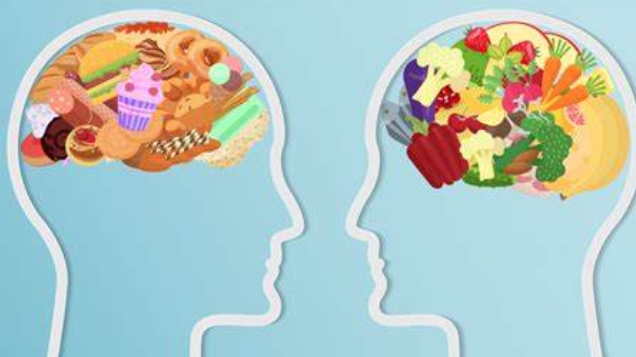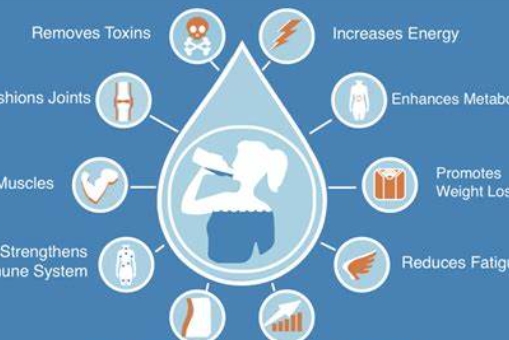Nutrition is commonly associated with physical health, but its impact on mental health is equally profound. What we eat can have a significant effect on how we feel emotionally, mentally, and psychologically. The food we consume influences our brain chemistry, hormone levels, and mood regulation. This connection between diet and mental health has gained increasing attention in recent years, and studies continue to show that a balanced diet can play a crucial role in managing mental health conditions such as anxiety, depression, and stress.
How Diet Influences Brain Chemistry
Our brain is constantly processing information and regulating bodily functions through neurotransmitters, which are chemical messengers that transmit signals between nerve cells. These neurotransmitters include serotonin, dopamine, and norepinephrine, which are all involved in mood regulation. The production of these neurotransmitters depends on the nutrients we provide our bodies.
For example, serotonin, often referred to as the “feel-good” neurotransmitter, plays a key role in regulating mood, sleep, and appetite. Around 90% of serotonin is produced in the gut, and it relies on nutrients like tryptophan (an amino acid) to be synthesized. Foods that are rich in tryptophan, such as turkey, chicken, eggs, nuts, and seeds, can help improve serotonin production and promote a positive mood.
Dopamine is another neurotransmitter that is involved in pleasure and reward pathways. It is associated with feelings of motivation, focus, and enjoyment. Omega-3 fatty acids, found in foods like fatty fish, flaxseeds, and walnuts, play a vital role in maintaining dopamine levels. Including omega-3-rich foods in your diet can help support brain function and enhance cognitive performance.
Norepinephrine, which is linked to focus, alertness, and the stress response, is also regulated by nutrition. B vitamins, especially B6, B12, and folate, are essential for the production of norepinephrine. These vitamins are found in foods like leafy greens, whole grains, beans, and lean meats. Consuming a diet rich in B vitamins can help maintain mental clarity and manage stress.
The Gut-Brain Connection
The gut and brain are closely connected through a complex communication network known as the gut-brain axis. This connection allows the gut to influence brain function, mood, and even mental health. The gut is home to a vast number of bacteria, collectively known as the gut microbiota, which plays an important role in regulating the immune system, digestion, and brain function.
An imbalance in the gut microbiota, often referred to as dysbiosis, has been linked to various mental health disorders, including anxiety, depression, and stress. A diet rich in fiber, prebiotics, and probiotics can help support a healthy gut microbiota and improve mental health. Foods like yogurt, kimchi, sauerkraut, whole grains, and fruits are excellent for maintaining gut health and promoting the growth of beneficial bacteria.
Inflammation and Mental Health
Chronic inflammation is a common feature of many mental health disorders, including depression and anxiety. Inflammation in the brain can interfere with neurotransmitter function and disrupt mood regulation. Certain foods have been shown to either promote or reduce inflammation in the body.
To reduce inflammation, it is important to focus on a diet rich in anti-inflammatory foods. These include fruits and vegetables, omega-3 fatty acids, olive oil, and turmeric. On the other hand, processed foods, refined sugars, and trans fats can promote inflammation and negatively impact mental health. Reducing the intake of these foods can help reduce inflammation and support overall well-being.
Nutrient Deficiencies and Mental Health Disorders
Deficiencies in certain nutrients can lead to or exacerbate mental health issues. For example, vitamin D deficiency has been linked to symptoms of depression and seasonal affective disorder (SAD). Vitamin D plays an important role in brain function, and adequate exposure to sunlight is necessary for the body to produce it. In addition to sunlight, fatty fish, fortified dairy products, and egg yolks are good sources of vitamin D.
Iron deficiency is another common issue that can lead to symptoms of fatigue, irritability, and depression. Iron is essential for carrying oxygen to the brain and is found in foods like red meat, lentils, spinach, and beans.
Magnesium, a mineral involved in more than 300 biochemical reactions in the body, is also crucial for mental health. Magnesium helps regulate neurotransmitters that control mood and stress responses. A deficiency in magnesium has been associated with anxiety, depression, and insomnia. Foods such as leafy greens, nuts, seeds, and whole grains are excellent sources of magnesium.
Creating a Mental Health-Supportive Diet
A healthy, well-balanced diet that supports brain function is key to maintaining good mental health. A Mediterranean-style diet, rich in fruits, vegetables, whole grains, legumes, nuts, seeds, and healthy fats, is often recommended for improving both physical and mental well-being. This diet is rich in antioxidants, omega-3 fatty acids, and anti-inflammatory compounds, all of which support brain health and reduce the risk of mental health disorders.
In addition to eating a nutrient-dense diet, it is also important to stay hydrated. Dehydration can impair cognitive function and negatively affect mood. Drinking enough water throughout the day is essential for maintaining mental clarity and emotional balance.
Mindful Eating and Mental Health
Mindful eating, which involves paying attention to the sensory experience of eating and recognizing hunger and fullness cues, can also help improve mental health. By slowing down and savoring meals, you can develop a healthier relationship with food and reduce stress around eating. This practice can help prevent overeating and emotional eating, both of which can have negative effects on mental health.
Conclusion
Nutrition plays a significant role in mental health, and the foods we eat can directly impact how we feel, think, and behave. A balanced diet that includes nutrient-rich foods such as fruits, vegetables, lean proteins, whole grains, and healthy fats can support brain chemistry, reduce inflammation, and promote a positive mood. By understanding the link between nutrition and mental health, we can make more informed choices that support our well-being and emotional balance.





